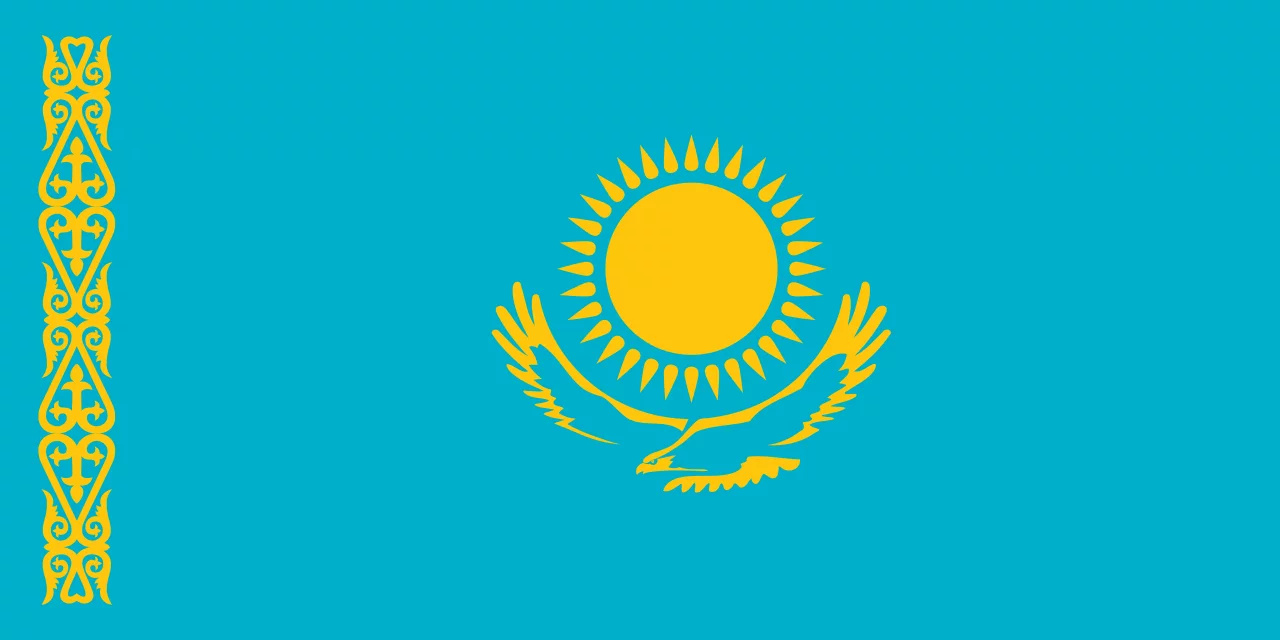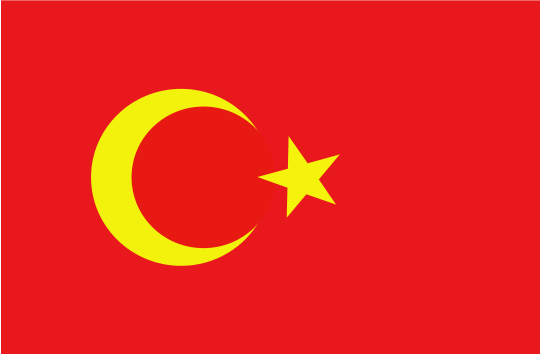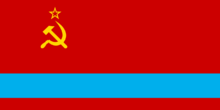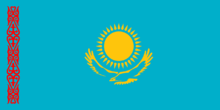哈萨克斯坦国旗

哈萨克斯坦国旗呈长方形,长与宽之比为2∶1。旗地为浅蓝色,旗面中间是一轮金色的太阳,太阳放射出32道光芒,其下有一只展翅飞翔的雄鹰。靠旗杆一侧有一垂直竖条,为哈萨克传统的金色花纹图案。
浅蓝色是哈萨克人民喜爱的传统颜色,代表天空,也象征康乐、和平、宁静;哈萨克斯坦于1991年12月独立后采用此国旗。1992年6月4日启用。
- 中文名 哈萨克斯坦国旗
- 纵横比例 2∶1
- 形状 长方形
- 色彩构成 浅蓝色
- 使用日期 1992年6月4日
国旗简介
Flag Description: a gold sun with 32 rays above a soaring golden steppe eagle, both centered on a sky blue background; the hoist side displays a national ornamental pattern "koshkar-muiz" (the horns of the ram) in gold; the blue color is of religious significance to the Turkic peoples of the country, and so symbolizes cultural and ethnic unity; it also represents the endless sky as well as water; the sun, a source of life and energy, exemplifies wealth and plenitude; the sun's rays are shaped like grain, which is the basis of abundance and prosperity; the eagle has appeared on the flags of Kazakh tribes for centuries and represents freedom, power, and the flight to the future
历史沿革
哈萨克汗国时代(1456-1822)
在苏丹克烈汗与贾尼别克汗创立哈萨克汗国时,便采用了以蓝色为底色的国旗。
 哈萨克汗国国旗
哈萨克汗国国旗 占有很大的领土,最远到达东欧黑海沿岸。他们居住地区名为钦察草原,小玉兹、中玉兹、大玉兹。又称大帐、中帐、小帐。中帐在哈萨克中部高地,小帐在乌拉尔河至里海,大帐在巴尔喀什湖至突厥斯坦。小帐也吸收不少诺盖人。东至额尔齐斯河、北至伊施姆河、图尔盖州、鄂木斯克,西至里海,南及楚河。巴兰杜黑汗时代军力50000人,哈斯木汗时代人口百多万,兵力三十多万。
俄国统治时期(1822-1917)
哈萨克汗国后来分裂。18世纪,俄罗斯人在西伯利亚南下,先并吞小玉兹。在1818年,并吞中玉兹。1822年大玉兹并入俄国,归草原总督区管理,哈萨克汗国1847年正式亡国。存在366年。这一地区使用沙俄国旗。
苏联时期(1922-1991)
被苏联合并后,先后使用过三面旗帜。
 阿拉什共和国国旗
阿拉什共和国国旗 50年代后期,各加盟共和国的旗帜都不再是统一的格式(在苏联国旗的基础上写上国名)。哈萨克的国旗改为在苏联国旗旗面上横贯一条蓝色横纹。
 哈萨克苏维埃社会主义共和国国旗(1953-1991)
哈萨克苏维埃社会主义共和国国旗(1953-1991) 哈萨克斯坦(1992-至今)
1992年6月起使用至今的国旗。
 哈萨克斯坦国旗(1992)
哈萨克斯坦国旗(1992)
象征意义
哈萨克斯坦于1991年12月独立后采用此国旗。